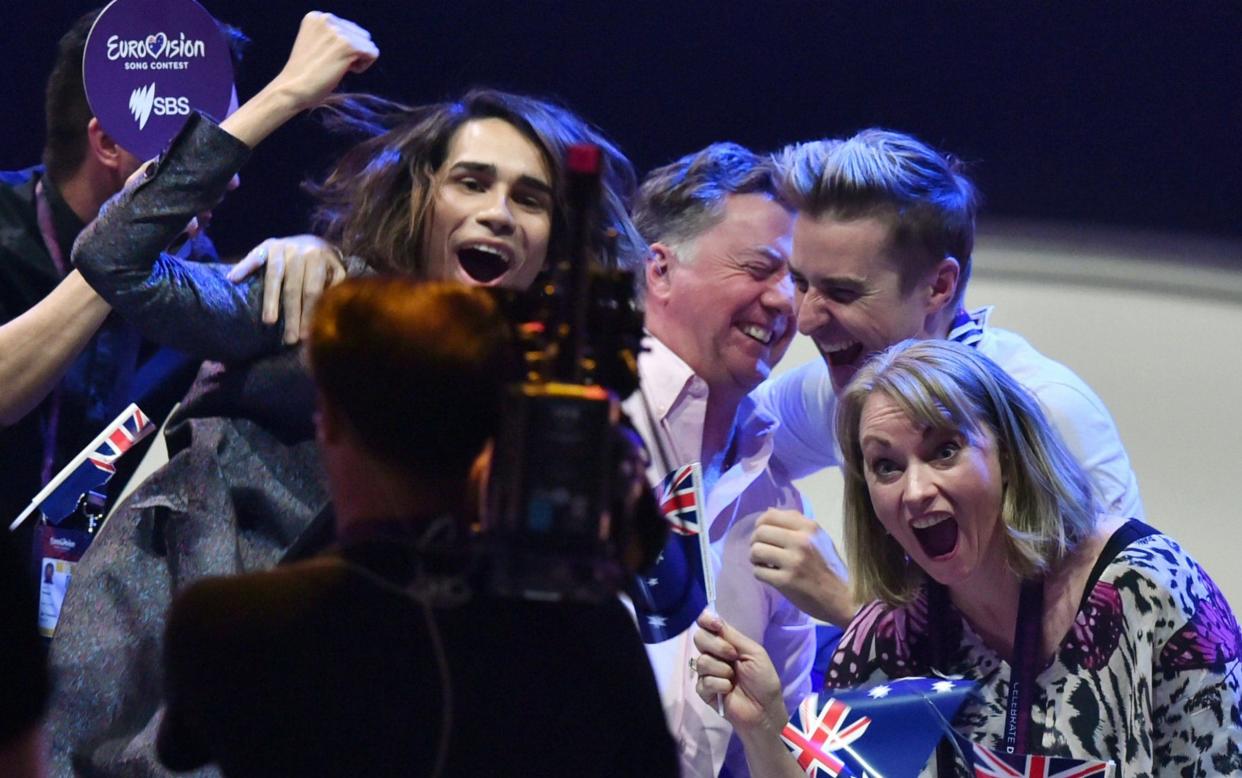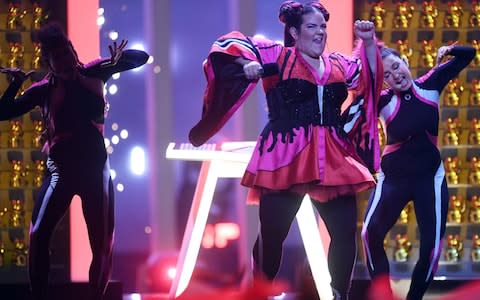Why are Australia in Eurovision – and could the contest come to the UK if they won?

Non-Europeans Australia have competed in the Eurovision Song Contest for the past three years – and yet few people are entirely sure why.
So it makes sense to spell this one out yet again, so we can all crack on with more important matters – such as who to bet on to win some money and which (responsibly undertaken) drinking games to deploy ahead of Saturday's final.
Why are Australia in the Eurovision Song Contest?
Despite not being European, Australia have been participating in the Eurovision Song Contest since 2015, when they were invited to compete to celebrate the contest's 60th birthday. The official line is that Special Broadcasting Service (SBS), an Australian TV network, had broadcast the Contest for a number of years and the organisers EBU thought it might be nice to get them involved.
Yet some point to the timing of 2015's competition: at the time, SBS were trying to get legislation introduced in Federal Parliament to allow them more advertising slots during prime time. With Australians such enthusiastic fans of the contest, the opportunity to take part in the show would be a sure-fire ratings – and advertising – bonanza for the broadcaster.
Australia turned up in style with Guy Sebastian (the Aussie equivalent of Bruno Mars) and finished, impressively, in fifth place. (The UK finished in 24th. The less said about that the better).
As if to challenge the claim in Sebastian's song, Tonight Again, that "this is one tough act to follow", Australia returned in 2016, after being invited to return by Eurovision organisers.
This time around they didn't even have to pre-qualify, as they had in 2015. Instead they sashayed through the semi-finals to the final, in which they came second after winning the jury vote.
The country's return in 2017 cemented their place in the contest. For the third year running, the EBU invited Australia to participate and they duly accepted.
Isaiah Firebrace, a 17-year-old who won the Australian X Factor in 2016, followed the well-trodden path from reality television to Eurovision. He didn't do spectacularly as X Factor winners go, as his single, It's Gotta Be You, managed a feeble 26 in the Australian charts. However he came in at a respectable 9th place in last year's competition, while the UK came 15th.
This year, Australia are, naturally, making their return. Jessica Mauboy, who rose to fame after becoming a runner-up in Australian Idol in 2006, will be representing the country and hoping to snag the first place slot. But if she does, what does that mean for 2019's contest?
What happens if Australia win Eurovision?
Inviting Australia to Eurovision is one thing; hosting Eurovision in Australia is quite another. The country has previously said that if they won, they would be up for co-hosting the competition (somewhat parasitically) in another country.
Some mooted the UK, which could be a bit of a salt-wound-rub situation, given our catastrophic track record for the past two decades, but would also give us a chance of hosting that we're unlikely to manage ourselves.
How are Israel and Russia also in Eurovision?
The answer lies in the European Broadcasting Union (EBU), which is responsible for broadcasting the contest. Despite officially being part of the Middle East, Israel has competed in Eurovision since 1973 and has won three times – because the Israel Broadcasting Authority is a member of the EBU. Likewise, Russia made their Eurovision debut in 1994 after becoming a member of the EBU.

Yet the inclusion of Israel hasn't been without controversy: in 2005 Lebanon withdrew from the competition after refusing to show the Israeli act on their television channel Tele-liban. The contest rules dictate that all countries taking part must show every entry, so the Lebanese act Aline Lahoud was withdrawn.
This year's Israeli act has been the bookies’ favourite to win the whole competition over the course of Eurovision week. Netta's performance of Toy, complete with chicken-esque dancing, could easily take the 2018 trophy. However viewers were surprised when Russia's act, Julia Samoylova's I Won't Break, was knocked out of the semi-final.
Eurovision 2018 | Read More

